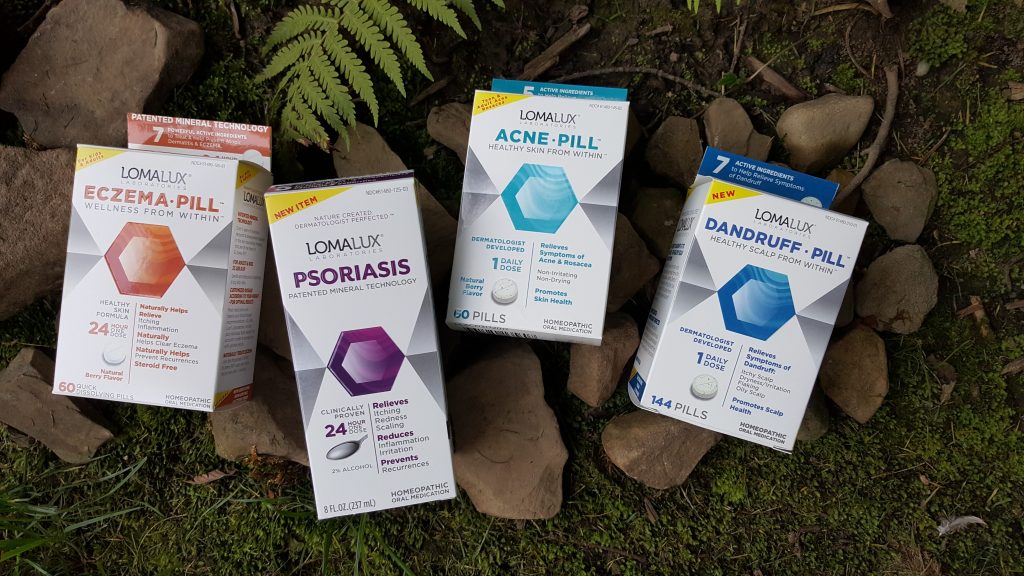How to Transition Your Skin from Summer to Fall/Winter
| 10Sep2020

Is your skin ready for Fall/Winter? As temperatures drop, our skin becomes more prone to dryness. If you have eczema or psoriasis, you are at heightened risk, as chilly temperatures, indoor heat, and low humidity can worsen or trigger symptoms.
Not to worry, there are simple changes you can make to your skincare routine, lifestyle, and diet to help you beautifully transition your skin from summer to fall/winter. Here are some great tips:
SKINCARE
Make sure your skincare products are right for your skin type, then, adjust your products to ones that are gentler, more moisturizing. Instead of lotions, think creams, which have more emollients. Fragrance-free, Sensitive-Skin products are ideal, as a fragrance is the #1 cause of skin irritation.
While cleansing, the key is to be gentle on your skin, so you don’t further irritate it, use your fingertips, never harsh washcloths or scrubbing sponges. Rinse with lukewarm, never hot water.
Though a hot bath or shower is a great way to relax and unwind, it isn’t good for your skin, as it strips away moisture. Instead, opt for lukewarm water while bathing. To lock in moisture, use a moisturizer immediately after bathing. For added protection against cold weather, choose oil-based moisturizers over water-based products.

When shaving, soften facial hair with warm water prior to shaving. Use sharp razors and stick to moisturizing/sensitive skin shaving products. Immediately after shaving, use a moisturizer to seal in moisture.
To keep bacteria away, throw out make up older than 1 year old.
Wash your makeup brushes regularly.
Treat your feet and hands overnight with a heavy moisturizer, and then add gloves or socks to wear to lock in moisture.
Using a moisturizing mask a few times a week will help to keep your face hydrated.
DRINK AS MUCH WATER AS YOU DO IN THE SUMMER
Though drinking lots of water doesn’t sound tempting in colder weather, drink 6 – 8 glasses of water daily. Water delivers moisture to the skin and helps to prevent dryness, tightness, and flaking. Water also plumps your skin and flushes wastes and toxins from your body to promote healthy skin.
HUMIDIFY
Cold temperatures and indoor heating mean low humidity, creating skin dryness. Whole house humidifiers are ideal, but if that is not an option, then consider using a portable humidifier in your bedroom to put moisture back into the air. It will hydrate your skin & nasal passages as well.
SLEEP

Lack of sleep not only makes you tired, it makes you look tired. Sleep deprivation can lead to dryness, irritation and can age your skin. Your skin will thank you if you get 7 or more hours of restful sleep nightly.
Eczema and psoriasis prone skin is most vulnerable at night, when skin irritation, itching and inflammation are at their worst. At night, you skin’s pH level becomes more acidic, your skin is less hydrated and your skin temperature changes. Moisture/water loss leads to dry skin, causing itching and irritation.
Keep your skin well hydrated by bathing and moisturizing just before bedtime.
Take melatonin to help make you drowsy to help prevent itching.
Keep your bedroom temperature cool and use a fan to keep room temperature low to avoid overheating your skin.
Change your bedding regularly, ideally every 2 – 3 days to reduce bacterial growth that can irritate the skin. Also, wash your bedding, clothing, towels with fragrance-free detergents designed for sensitive skin types. Use the extra rinse cycle in your washing machine to make sure all cleaning residue is not left behind.
EXERCISE
Regular exercise not only improves your health, but it is also essential for healthy skin. It increases blood circulation, carrying oxygen to nourish your body and skin. Improved circulation flushes toxins and waste products from your body. If you haven’t exercised before, check with your doctor to make sure you are healthy enough to exercise.
To reduce sweating that can exacerbate eczema and psoriasis, choose gentle exercise regimens, such as walking outdoors, or yoga. Be sure to shower immediately after exercise, as excess perspiration can worsen skin conditions.
STRESS LESS
Unfortunately, stress is a fact of life. Stress increases inflammation in your body. To help relieve stress levels, people have found exercise, mediation, and deep breathing helpful.
PROBIOTICS
Probiotics help dial down skin inflammation. Probiotics contain “good” bacteria to prevent “bad” bacteria from taking over; optimizing your skin’s healing powers. In addition to fermented foods, there are many probiotics on the market today.
HEALTHY DIET – HEALTHY SKIN
You really are what you eat. Healthy eating habits not only impact your overall health, but it also impacts your skin’s health.
Research suggests that a nutrient-poor diet will increase inflammation, while a healthy diet of anti-inflammatory foods will help improve your skin.
An anti-inflammatory diet is basically a Mediterranean style diet rich with fresh foods that include a rainbow of colorful fruit and vegetables, healthy fats/proteins and whole grains.
There is a lot of information available to help you plan a diet that works for you, but if you aren’t ready to start a whole new way of eating, start with small steps. Eliminate inflammatory foods such as processed meats, margarine, fried foods, and processed snacks. Limit sugary foods and drinks.
According to the National Psoriasis Foundation, about 25% of psoriasis sufferers are also gluten-sensitive. Research has shown that a gluten-free diet may improve psoriasis symptoms for those people who have gluten sensitivity. If you think you might be gluten sensitive, ask your doctor to test you before changing your diet to gluten-free. Eliminating 100% of gluten all at once can be difficult, so you can start gradually by eliminating just one major commonly used grain, which is typically wheat, from your diet.
Avoid alcohol, it dehydrates your skin. https://lomalux.com/learning-center/eczema-diet-tips/

VITAMINS, SUPPLEMENTS
Your skin needs a balance of nutrients, but not many people can follow a perfect diet every day of their life. That’s why certain vitamins and supplements can help promote skin health.
Omega-3 Fatty Acids – these healthy facts make your skin glow. Choose fats from nuts, seeds, avocadoes, and cold-water fish like salmon. These fats are also available via supplements.
Vitamin A – Gives your skin protection against dry, itchy skin. It is available in supplements and in carrots, dark leafy green veggies, and eggs.
Vitamin C – An antioxidant, it helps the skin fight the aging process. Low levels of Vitamin C in your body can make your skin bruise easily and heal slower. Along with vitamins, citrus fruits, broccoli, cauliflower, and squash contain high levels of Vitamin C
Vitamin D3 – The sunshine vitamin, it helps the skin grow and repair itself, so low levels of it can lead to skin problems, especially inflammation. Your body naturally makes Vitamin D3 when exposed to sunshine, so in the fall/winter, supplementation is recommended.
Vitamin E – Another antioxidant, it is also an anti-inflammatory. Some research suggests it helps with skin aging and wound healing. Find it in seeds, nuts, spinach, mangoes, and corn and in supplements.
Zinc – This mineral helps your skin heal following an injury. Meats, shellfish, nuts, and dairy contain high levels of zinc.
INTERNAL SKINCARE WITH ALL-NATURAL MINERALS
Loma Lux Acne Pill, Eczema Pill, Dandruff Pill & Psoriasis all contain anti-inflammatory and other skin-clearing minerals that are taken orally to clear skin from the inside out for healthy skin from within. Created, developed, researched, and tested by our dermatologist founder, why use a topical treatment when skin conditions start internally where topical medications can’t reach? Loma Lux attacks the internal source. Learn more at https://lomalux.com/

